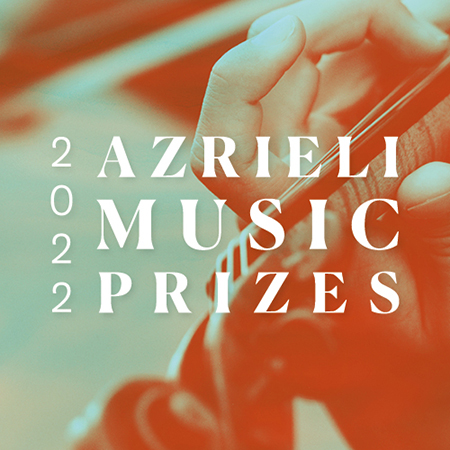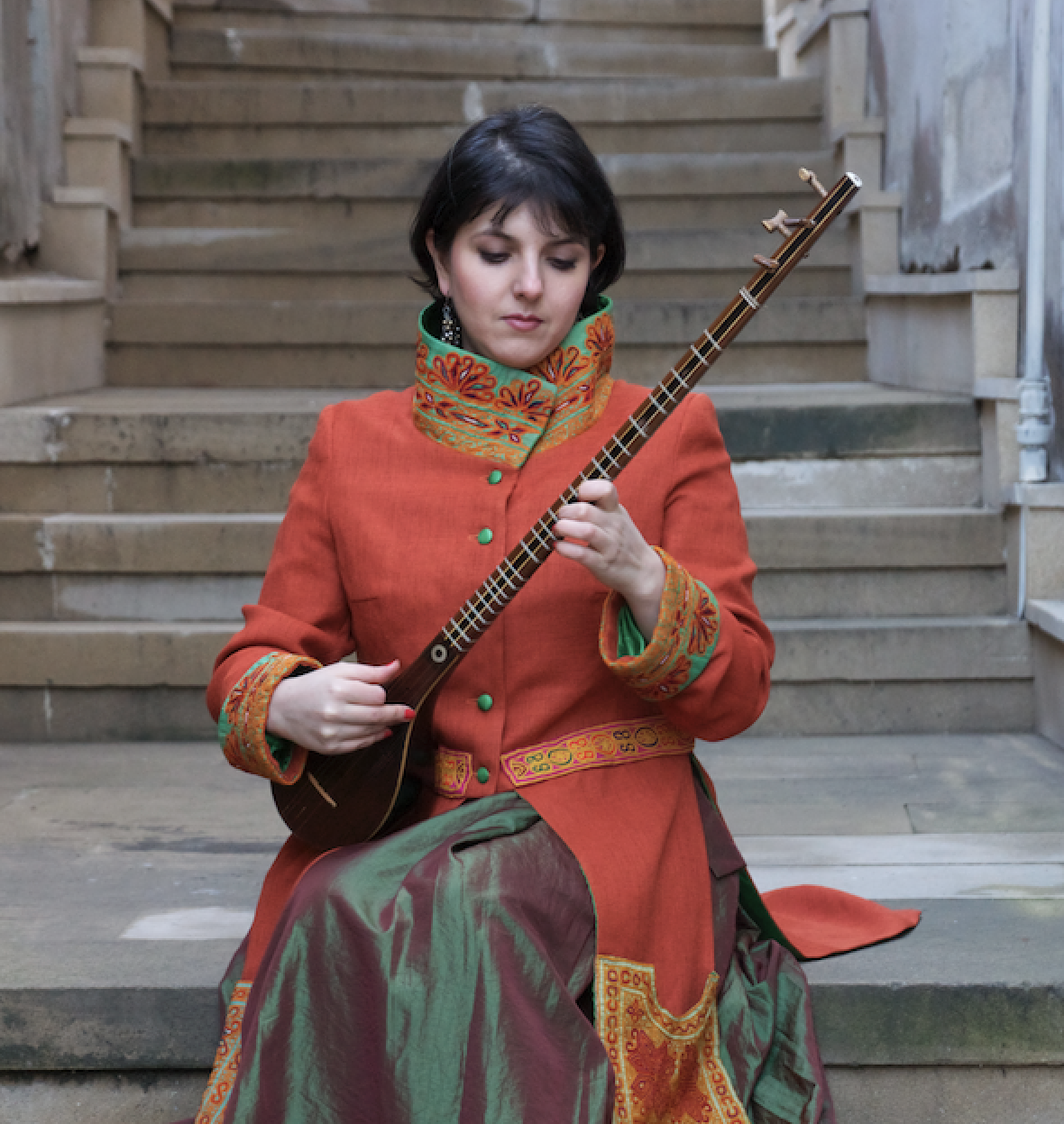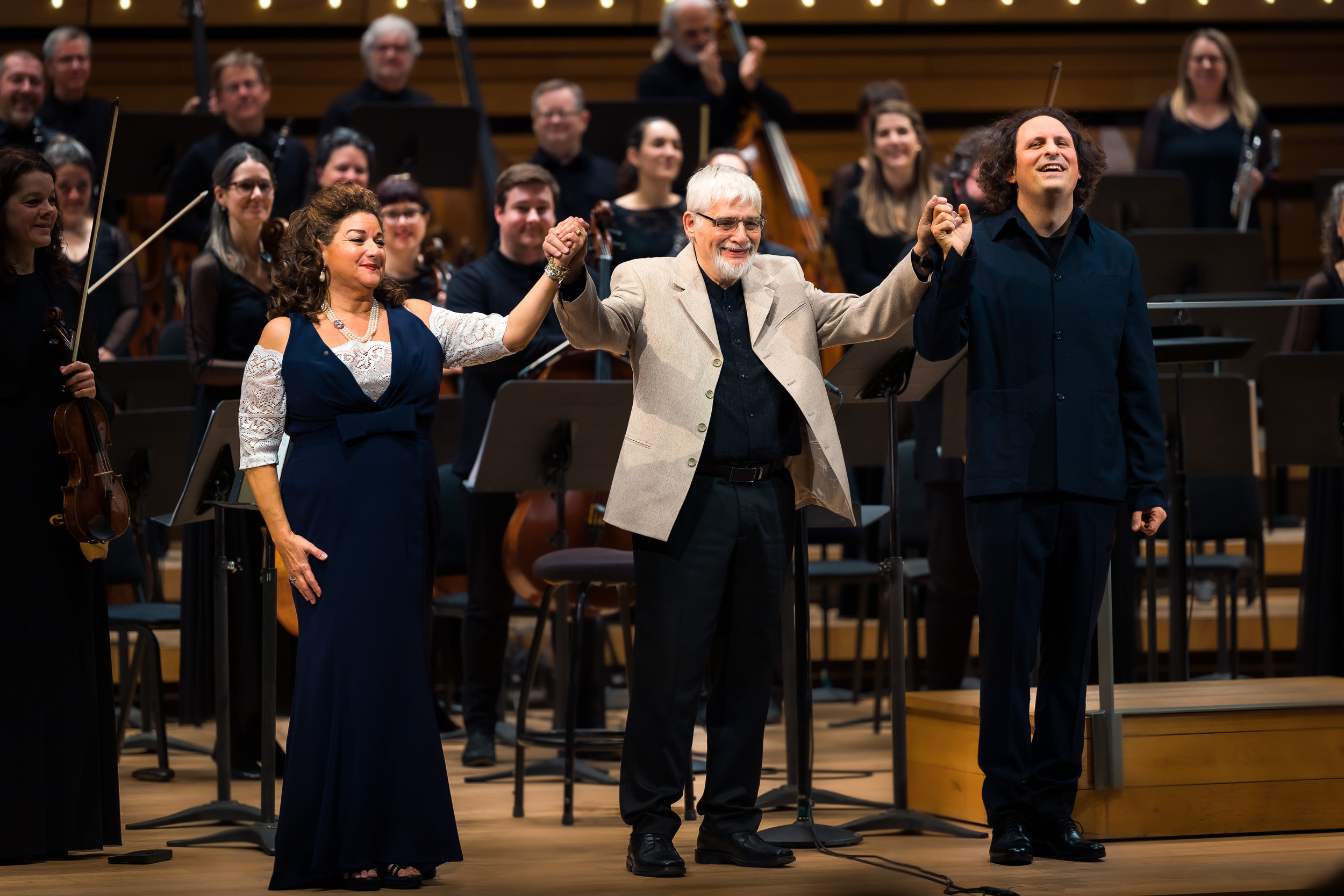Reviews
3 Composers in the Limelight: the Azrieli Music Prize Gala
 MONTREAL--A powerful sense of interculturalism dominated this year's edition of the Azrieli Music Prizes. Two of the three works showcased at the October 20 prize-winners gala concert were written by immigrants to Canada, and both blended Western traditions with those of their creator’s native lands.
MONTREAL--A powerful sense of interculturalism dominated this year's edition of the Azrieli Music Prizes. Two of the three works showcased at the October 20 prize-winners gala concert were written by immigrants to Canada, and both blended Western traditions with those of their creator’s native lands.
An initiative of the Azrieli Foundation, a philanthropic organization created in the 1980s by the late Israeli-Canadian real estate tycoon David Azrieli, the prize includes $50,000 CAD for each of the three winners—one of the largest cash awards for composers in the world--plus a recording and performances in Montreal and elsewhere. Since the initiative’s launch in 2014, the number winners per competition has increased from one to three, with a fourth, the International Prize, to be added next year.
Live-streamed on Medici.tv, the performance at Montreal's Maison Symphonique featured the Orchestre Métropolitain with Alexandre Bloch conducting all three pieces.
 Iman Habibi, an Iranian who emigrated to Canada aged 17, won the Azrieli Commission for Jewish Music for Shahin-nameh, which draws on the 14th-century Judeo-Persian poetry of Shahin Shirazi. The selected passages recount in lavish prose how the Jewish Esther foils the plans of Haman, an advisor to the Persian king, to have all Jewish subjects in the land killed. Habibi has translated the text from its original Judeo-Persian script into Farsi and set it for a traditional Persian singer and setar [sic] player and (Western) orchestra. The result is a kaleidoscopic mesh of dusky harmonies.
Iman Habibi, an Iranian who emigrated to Canada aged 17, won the Azrieli Commission for Jewish Music for Shahin-nameh, which draws on the 14th-century Judeo-Persian poetry of Shahin Shirazi. The selected passages recount in lavish prose how the Jewish Esther foils the plans of Haman, an advisor to the Persian king, to have all Jewish subjects in the land killed. Habibi has translated the text from its original Judeo-Persian script into Farsi and set it for a traditional Persian singer and setar [sic] player and (Western) orchestra. The result is a kaleidoscopic mesh of dusky harmonies.
Performing with a microphone, vocalist Sepideh Raissadat gave a ravishing account atop the orchestra’s glowing blanket of sound. High points in the premiere included the throbbing mix of lustrous strings and trilling winds Habibi uses to portray the luminescent Esther as she appears in a vision before the King like "the morning star.” Raissadat’s solo passages were also impressive, as she accompanied her virtuosic vocalizations with intricate playing on the setar.
Aharon Harlap, recipient of the Prize for Jewish Music for an existing work, sets more mainstream Jewish texts in his Out of the depths have I cried unto Thee, O Lord (2008). The Winnipeg native and citizen of Israel weaves a dark-to-light trajectory, in Hebrew, to depict the Jews overcoming adversity through their faith in God. The psalms have long been a "source of solace and comfort to the Jewish people,” Harlap writes in the work’s program note.
 Featuring soprano Sharon Azrieli--daughter of David Azrieli and sister of current foundation President and CEO Naomi Azrieli--the high-lying opening Psalm 130 finds the protagonist pleading with God for salvation as the orchestra intones a menacing march. This is followed by a fire-and-brimstone rendering of Psalm 120, complete with lashing brass, thrusting percussion, and slithering oboes. There are occasional flashes of Mahlerian schmaltziness, while the modal horn calls in Psalm 121's "I Raise my eyes to the mountains" echo Copland. Throughout, Harlap laces his colorful orchestrations with hints of klezmer. The work closes joyously with Psalm 112's “New song” punctuated with the soprano's dancing “Alleluias” and vocal leaps.
Featuring soprano Sharon Azrieli--daughter of David Azrieli and sister of current foundation President and CEO Naomi Azrieli--the high-lying opening Psalm 130 finds the protagonist pleading with God for salvation as the orchestra intones a menacing march. This is followed by a fire-and-brimstone rendering of Psalm 120, complete with lashing brass, thrusting percussion, and slithering oboes. There are occasional flashes of Mahlerian schmaltziness, while the modal horn calls in Psalm 121's "I Raise my eyes to the mountains" echo Copland. Throughout, Harlap laces his colorful orchestrations with hints of klezmer. The work closes joyously with Psalm 112's “New song” punctuated with the soprano's dancing “Alleluias” and vocal leaps.
A true original
If Harlap's work is narratively compact and tight, Rita Ueda’s 25-minute Birds Calling… from the Canada in You, winner of the Commission for Canadian Music, is daringly broad. With the country’s natural environment as its context, the piece recounts the darker moments of Canada’s recent history and Ueda’s emigration to Vancouver with her family in 1971. In a pre-performance discussion, Ueda said that the birds represented in some famous Western pieces, such as Beethoven’s Pastoral Symphony and Respighi’s The Birds, do not resemble those of the Canadian soundscape. In her new work, the composer attempts to accurately portray native Blue Jays, Snowy Owls, Gyrfalcons, and Hummingbirds.
 The opening movement depicts her airplane journey to Canada as a girl, which, she said, seemed like a journey on a phoenix to a magical new land. As such, she creates a delicate web of wheezing violins, delicately tapped xylophones, whistles from bowed tubular bells, and deep growls from the depths of the orchestra. At the premiere, wind and brass players positioned in the gallery produced an immersive swirl of note-less puffs. The sounds of the sho and sheng, Japanese and Chinese reed instruments played here by Naomi Sato and Zhongxi Wu, floated from the back of the hall as the soloists ceremoniously walked down the aisles and met onstage. Ueda included those instruments, she said in the discussion, as a reference to Canada’s multiculturalism.
The opening movement depicts her airplane journey to Canada as a girl, which, she said, seemed like a journey on a phoenix to a magical new land. As such, she creates a delicate web of wheezing violins, delicately tapped xylophones, whistles from bowed tubular bells, and deep growls from the depths of the orchestra. At the premiere, wind and brass players positioned in the gallery produced an immersive swirl of note-less puffs. The sounds of the sho and sheng, Japanese and Chinese reed instruments played here by Naomi Sato and Zhongxi Wu, floated from the back of the hall as the soloists ceremoniously walked down the aisles and met onstage. Ueda included those instruments, she said in the discussion, as a reference to Canada’s multiculturalism.
On stage, Wu switched his sheng for a suona (an elongated wind instrument whose players are trained to imitate birdsong), gave a few tentative squeaks, and unleashed a guttural cry. Other instruments responded with their own calls, building to a cacophony of groaning brass, cheeping violins, trilling oboes, and tapping glockenspiels. As the din gradually subsided, a minor-third call on the suona was repeated hypnotic effect. The peace is broken with a loud tutti outburst, representing natural disasters, such as avalanches and floods. Soon after, honking brass and distant sirens on winds allude to the Canada convoy protests. The sounds of nature finally return following this dystopian interjection, before being promptly and enigmatically snuffed out with a single gunshot. Thematically and technically, this work feels fresh, thoroughly Canadian, and breathtakingly original.
Photos from the top: Singer/setarist Sepideh Raissadat; Sharon Azrieli, Sharon Azrieli, Aharon Harlap; Rita Ueda





 FEATURED JOBS
FEATURED JOBS

 RENT A PHOTO
RENT A PHOTO


